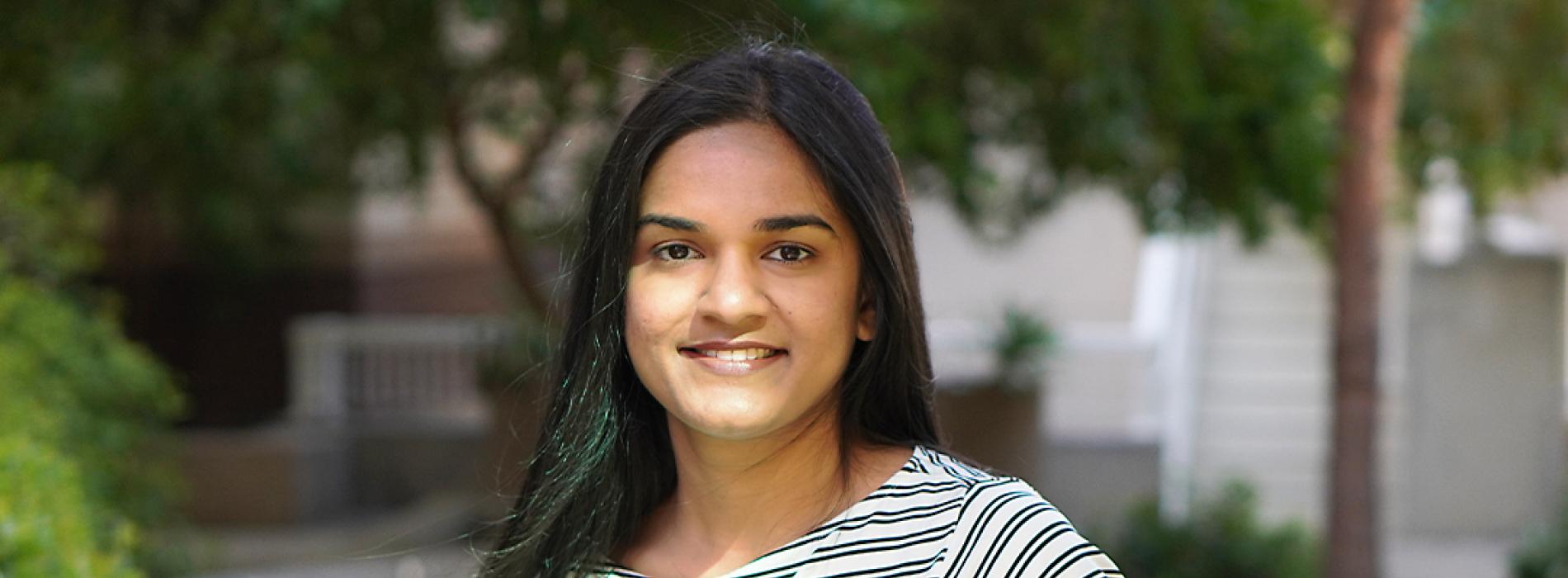
Aishwarya Borate
Degree: Ph.D. in Urban and Environmental Planning and Policy
Graduation Date: 2024
Hometown: Pune, India
Can you tell us a bit about your background and path to your graduate program?
I grew up in Pune and got my bachelor's degree in town planning from India. My involvement in different projects during my master's sparked my interest in research. Through conversations with communities impacted by disasters, and researchers and practitioners working on those issues, I became interested in addressing the pressing problems faced by communities developed in precarious settings using research.
Why did you choose your field of study and your program specifically?
During my master's, I was involved in a project studying the impacts of Hurricane Sandy on housing in New York City. After graduating, I worked on the preparation of a hazard mitigation plan for central Virginia. While studying the disaster management plans and policies in the U.S., my curiosity about Indian cities grew even more. Having grown up in a city occasionally impacted by flooding, I could not help but think of the complex nature of disaster management in Indian cities and how it could be improved through research.
When I was applying for doctoral programs, I was interested in continuing my research in the field of disaster studies. It is inherently a multi-disciplinary and multi-dimensional field. The UEPP program offered an opportunity to study environmental and social issues using an interdisciplinary approach. The faculty at UCI covers a varied range of topics and methods in answering the fundamental questions of the world around us. I was particularly interested in the work of Dr. Allaire and Dr. Feldman on water governance, flood risk mitigation, and environmental problems.
Have you conducted any research? If yes, can you tell us a bit about it?
During my master's, I worked on 1) a project quantifying the impacts of natural disasters in neighborhood transition and 2) a collaborative research project to create new holistic paradigms of resilient urban design for coastal cities in the U.S.
At UCI, I have been involved in a project focused on developing robust measures of social vulnerability for coastal regions in the U.S. using a high-resolution dataset.
My dissertation focuses on the well-being impacts of large-scale flooding events in India. The post-disaster response in India remains largely disconnected from the needs of the people, especially the vulnerable population. This gives rise to unmet needs and inadequate relief among individuals and negatively affects their well-being. Through my research, I am interested in understanding the factors that affect a household's ability to deal with the losses and recover.
How do you envision your degree from UCI opening doors for you and benefitting your career?
The UEPP program is highly regarded and has given me a chance to work on some novel research questions with the most respected professors in the field. In the last three years, I have had the opportunity to take courses across disciplines and have collaborated with students from different academic backgrounds. This has expanded my skill set, portfolio of research projects, and professional networks and introduced me to cutting-edge interdisciplinary research.
What's one piece of advice you would give to someone enrolling in the program?
Take advantage of the breadth of methods and theory courses, research centers, and ongoing projects on campus to figure out your research topics and questions. Interact as much as you can with your peers and professors to explore potential topics of interest.
Where will you go from here?
I enjoy doing research and teaching. I hope to continue doing research and teach at a research university. I am passionate about planning for vulnerable communities and want to contribute to the work towards bridging the gap between academia and practice in the field of planning and policy.